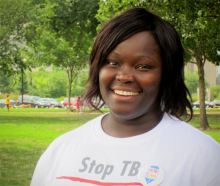The Global Fund has a plan to win the fight against the three major diseases of poverty—and it's working.
Malaria

New York Times op-ed columnist, David Brooks, responded, this week, to an intriguing article in the Washington Post about Jason Trigg, a recent MIT graduate, who chose a career on Wall Street as a way to redistribute wealth.
Trigg’s plan is simple. Make lots of money. Live simply. Give lots of money. It’s not far from John Wesley’s advice of, “Earn all you can. Give all you can. Save all you can.” Actually, it’s almost identical.
Brooks perceptively sees the dangers and pitfalls in the road ahead. Most specifically, wealth and the surrounding environment can have a corrosive effect, no matter good our intentions. Brooks writes:
…the brain is a malleable organ. Every time you do an activity, or have a thought, you are changing a piece of yourself into something slightly different than it was before. Every hour you spend with others, you become more like the people around you.
Gradually, you become a different person. If there is a large gap between your daily conduct and your core commitment, you will become more like your daily activities and less attached to your original commitment.
But, while I echo Brooks concern, I disagree with his ultimate conclusion. He goes on to argue that we should pursue careers that elicit passion (seeming to indicate that hedge funds couldn’t be a passion for some people) and that if we truly care about children in Africa, it’s best to go there – not Wall Street.
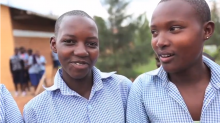
According to UNICEF, 29,000 children under the age of five – 21 each minute – die every day, mainly from preventable diseases.
The GAVI Alliance, a public-private partnership aimed at increasing worldwide access to immunizations, has a goal of reaching 250 million children by 2015. Dr. Mercy Ahun, GAVI special representative in Geneva, sat down with Sojourners to discuss the role of faith-based organizations in helping reach those 250 million,and the role her own personal faith plays in her work.
“What really got me into public health is my time in the children’s wards. We were working with children who had preventable diseases,” Ahun said. “… I thought to myself, why should stay here waiting for the children to fall sick before they come to the hospital. It’s better actually to go out there and prevent this in the first place.”
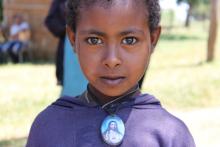
Many of today’s evangelical Christians seem to be taking to heart the words traditionally attributed to St. Francis of Assisi: “Preach the gospel at all times. When necessary, use words.”
Or at least they were at the recent Q Conference here, a gathering of more than a few of the most influential and innovative mover-shakers of the evangelical world.
Over the course of two days in a format similar to the popular TED talks, the speakers spoke passionately more about what they were doing to make the world a better place than they did about getting more butts into pews on any given Sunday.
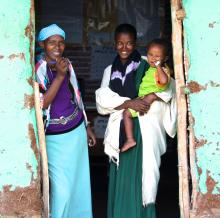
By the time President Obama walked off the stage at Chicago’s McCormick Place after delivering his acceptance speech early Wednesday morning, pundits already were screaming HERE COMES THE FISCAL CLIFF!
And while it might have been a nice idea to take a collective breath after such a divisive election season before new screeching began, the pundits were not wrong.
Be warned: The Fiscal Cliff approaches. On Jan. 2, 2013, to be exact.
Now, I am many things, but an economist (or even a person remotely comfortable with numbers) is not one of them. So let me explain to those of you who are like me, in the simplest terms possible, what this proverbial cliff is all about.
In the wake of the debt ceiling crisis last summer, Congress and President Obama agreed to enter into negotiations to enact a 10-year deficit reduction package in excess of $1.2 trillion.
If an agreement could not be reached, a mandatory, across-the-board reduction in spending (also known as “sequester” or “sequestration”) would occur. All discretionary and entitlement spending -- with a few exceptions -- would be subject to sequestration....
Under sequestration, the U.S. foreign aid that has made such a tremendous difference in Ethiopia and in the lives of countless millions of desperately poor Africans (and others) is in grave jeopardy.

Looking for a last-minute gift for Fathers Day or a graduate?
How about doing something for someone else in honor of your loved one?
Give a gift that helps the poorest of the poor feed their families, earn a living, protect themselves from disease or educate their children.
Inside the blog, find several suggestions of unique gifts that keep on giving.

Both Republicans and Democrats have a religion problem and it has nothing to do with same-sex marriage, abortion or religious liberty. Rather it is budgets, deficits, and debt ceiling deadlines that are their serious stumbling blocks.
That’s right, in a city deeply divided between the political right and left there is a growing consensus from religious leaders about getting our fiscal house in order and protecting low-income people at the same time. Together, many of us are saying that there is a fundamental religious principle missing in most of our political infighting: the protection of the ones about whom our scriptures say God is so concerned.
Indeed, the phrase “a budget is a moral document” originated in the faith community, and has entered the debate. But those always in most in jeopardy during Washington’s debates and decisions are precisely the persons the Bible instructs us clearly to protect and care for — the poorest and most vulnerable. They have virtually none of the lobbyists that all the other players do in these hugely important discussions about how public resources will be allocated.
For us, this is definitely not a partisan issue, but a spiritual and biblical one that resides at the very heart of our faith. It is the singular issue which has brought together the U.S. Conference of Catholic Bishops, the National Association of Evangelicals, the Salvation Army, and the leaders of church denominations, congregations, and faith-based organizations across the nation.
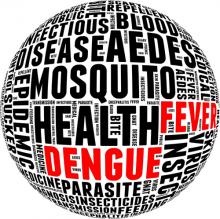
When I moved to Washington, D.C., I—like perhaps most other 20-somethings—imagined this place as a hub of both political thought and non-profit zeal; the coexistence of both worlds, all to change society. Lofty ideals, right? Perhaps.
Ideal, meet the venue Busboys and Poets plus friends and co-laborers in the fight for justice: Faiths Act, ONE, Malaria No More, and the 9/11 Unity Walk. Last night, a handful of musicians and spoken-word artists united in faith and activism under a common cause: World Malaria Day concert for Sierra Leone.
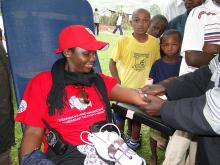
This week, the Senate will vote on H.R. 2354, an appropriation bill that will determine the amount of funds we allocate for poverty-related development assistance. There are a number of amendments proposed that will severely cut this aid, which currently helps millions of the world's poorest and most vulnerable. The bottom 1 percent, if you will.
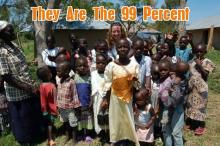
Right now, in cities around the world, there is a growing protest movement putting the issue of economic inequality squarely on the public agenda. Regardless how you feel about this movement, I believe there is another "99 percent" we need the G20 – and urgently Congressional leaders – to remember and prioritize.
Nearly 8 million children under the age of five die every year due to preventable malnutrition and disease. But they are not dying in the United States, Germany or here in France.
According to research by World Vision’s Child Health Now campaign, 99 percent of those entirely preventable deaths take place in developing countries. The 99 percent of the children that die under the age of 5 are too often invisible and don't have a voice at major global summits such as the G20 or in the corridors of Congress. These children constitute the real and too often forgotten 99 percent.
This morning, as I caught up on what had been going on in the world over the weekend, I stumbled across a very interesting resource -- a website that compares the frequency with which words appear in the Bible and the Quran.
Although that in itself is an interesting tool, I was less interested in the comparison feature and more interested to see how often certain words appear in the Bible.
Adam Phillips is a Evangelical Covenant Church minister and director of faith mobilization for the ONE Campaign, www.one.org.
This video is the latest installment in an ongoing series at God's Politics where we've asked leading clergy, writers, scholars, artists, activists and others who self-identify as "evangelical" to answer the question, "What is an Evangelical?"
Growing up in the Bible belt in east Tennessee, I can remember an entire campaign built around "What Would Jesus Do?" There were WWJD bracelets, stickers, and T-shirts everywhere.
Congress is working on the federal budget for the rest of the fiscal year 2011.
